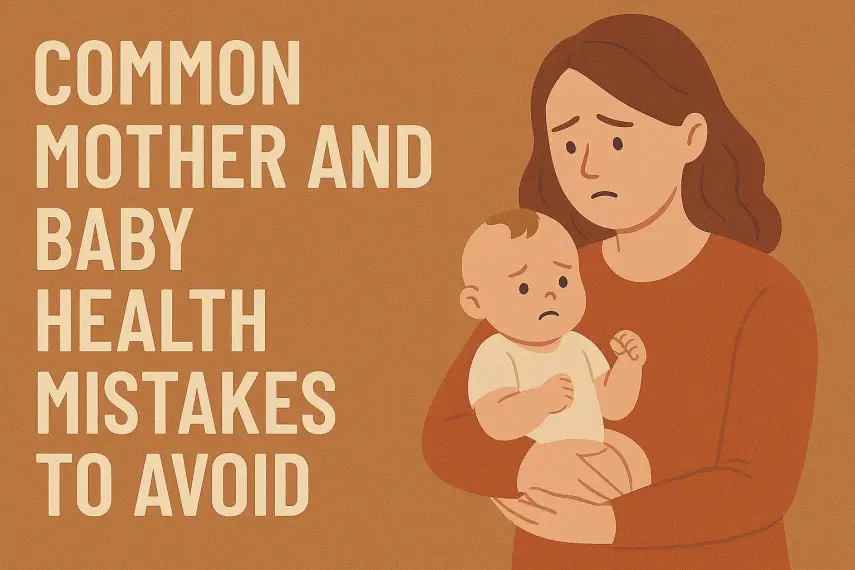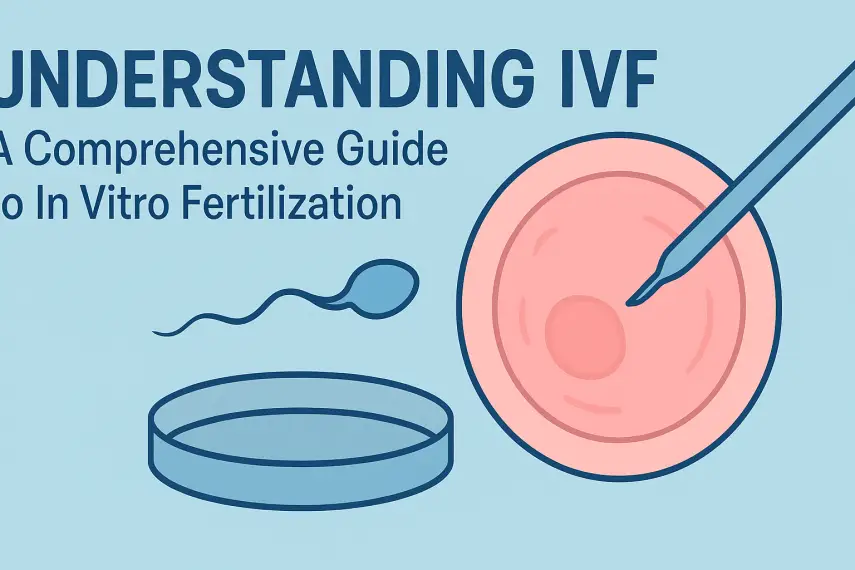
Common Mother and Baby Health Mistakes to Avoid
📑 Contents
New motherhood can be overwhelming, and even the most well-intentioned parents sometimes fall into common mother and baby health mistakes. Recognizing and avoiding these errors is crucial to ensuring the well-being of both mother and child. In this comprehensive guide, we’ll explore the most frequent pitfalls, backed by medical evidence, and provide practical strategies for safer, healthier parenting.
Understanding Mother and Baby Health Mistakes

Parenting comes with a learning curve, especially regarding health and safety. Many common mistakes stem from outdated advice, misinformation, or simply being unaware of current medical guidelines. Let’s examine these areas and how to address them proactively.
Common Mistakes During Pregnancy

Prenatal health is foundational for both mother and baby. Here are some frequent mistakes expectant mothers make:
- Neglecting Prenatal Checkups: Skipping regular visits can delay the detection of complications like gestational diabetes or preeclampsia.
- Poor Nutrition Choices: Consuming too much processed food or insufficient folic acid increases risks for both mother and baby.
- Ignoring Mental Health: Anxiety and depression during pregnancy can affect fetal development if left unaddressed.
- Unsafe Medications: Not all medicines are safe in pregnancy; consult a healthcare provider before taking any new medications.
Table 1: Prenatal Care Recommendations vs. Common Mistakes
| Recommendation | Common Mistake | Potential Risk |
|---|---|---|
| Attend all prenatal visits | Skipping appointments | Missed early detection of complications |
| Balanced, nutrient-rich diet | High sugar/fat intake | Gestational diabetes, poor fetal growth |
| Manage stress and mental health | Ignoring symptoms | Increased risk of postpartum depression |
| Use medications only under supervision | Self-medicating | Birth defects, complications |
Newborn Care Mistakes

After birth, attention shifts to newborn care. Some common mistakes include:
- Improper Sleep Position: Placing babies on their stomachs increases the risk of sudden infant death syndrome (SIDS). Always place babies on their backs to sleep.
- Overbundling or Overheating: Excessive clothing or blankets can lead to overheating, a known risk factor for SIDS.
- Ignoring Safe Sleep Guidelines: Co-sleeping in the same bed, using pillows, or soft bedding can be hazardous.
- Delayed Immunizations: Postponing vaccines increases the risk of preventable diseases.
Table 2: Safe Newborn Sleep Practices
| Practice | Safe (Yes/No) | Reason |
|---|---|---|
| Baby sleeps on back | Yes | Reduces SIDS risk |
| Baby sleeps on stomach | No | Increases SIDS risk |
| Loose bedding in crib | No | Risk of suffocation |
| Firm mattress, fitted sheet | Yes | Promotes safe sleep environment |
| Room-sharing (not bed-sharing) | Yes | Reduces SIDS risk |
Feeding and Nutrition Mistakes
Nutrition is critical in the first year of life, but mistakes are common:
- Early Introduction of Solids: Introducing solids before 4–6 months can increase allergy and choking risks.
- Improper Formula Preparation: Adding extra water or formula can harm baby's kidneys or nutritional balance.
- Delaying Allergenic Foods: Recent evidence suggests that delayed introduction of foods like peanuts may increase allergy risk.
- Not Breastfeeding When Possible: While not always possible, exclusive breastfeeding is recommended for the first 6 months for most infants.
Table 3: Recommended Feeding Milestones
| Age | Feeding Recommendation | Common Mistake |
|---|---|---|
| 0–6 months | Exclusive breastfeeding or formula | Early solids, diluted formula |
| 4–6 months | Introduce iron-rich solids as advised | Adding salt/sugar, choking hazards |
| 6–12 months | Diverse, age-appropriate foods | Delaying allergenic foods unnecessarily |
Maternal Health and Postpartum Mistakes
The postpartum period is vital for a mother’s recovery. Common mistakes include:
- Neglecting Self-Care: Mothers often prioritize baby’s needs over their own, leading to burnout or missed health issues.
- Ignoring Postpartum Depression: Up to 1 in 7 women experience postpartum depression, which requires professional support.
- Skipping Follow-Up Appointments: Postnatal checkups help monitor healing and detect complications.
- Resuming Activities Too Soon: Heavy lifting or intense exercise before medical clearance can delay healing.
Hygiene and Safety Mistakes
Hygiene and safety are crucial in preventing infections and injuries. Key areas to watch:
- Improper handwashing before handling baby
- Unsafe car seat use (incorrect installation or positioning)
- Not baby-proofing the home as baby grows
- Using unapproved sleep products or toys
Frequently Asked Questions (FAQ)
- What is the most common health mistake new mothers make?
Neglecting their own mental and physical health, including missing postnatal checkups and underestimating postpartum depression, is a frequent oversight. - How can I prevent SIDS in my newborn?
Always place your baby on their back to sleep, use a firm mattress with no loose bedding, and avoid overheating or co-sleeping in the same bed. - Is it safe to introduce allergenic foods early?
Recent guidelines suggest introducing allergenic foods like peanuts between 4–6 months may help prevent allergies, but consult your pediatrician first. - What are the signs of postpartum depression?
Symptoms include persistent sadness, loss of interest in activities, trouble bonding with the baby, and changes in sleep or appetite. Seek help if these occur. - When should I start solid foods for my baby?
Most babies are ready for solids between 4 and 6 months; look for signs of readiness and consult your pediatrician. - How often should I take my baby for checkups?
Follow your pediatrician’s recommended schedule, typically at birth, 1 month, 2 months, 4 months, 6 months, and so on. - Can I use over-the-counter medicine during pregnancy?
Many medicines are unsafe during pregnancy. Always consult your healthcare provider before taking any medication. - What is the safest way to transport my newborn in a car?
Use a rear-facing car seat correctly installed in the back seat. Follow the manufacturer’s instructions and local regulations.
Conclusion: Prioritize Evidence-Based Care
By understanding and avoiding these common mother and baby health mistakes, you can foster a safer and healthier environment for both you and your child. Stay informed, consult with healthcare professionals, and don’t hesitate to ask questions. For more trusted parenting guidance, visit isayinfo.com today.











